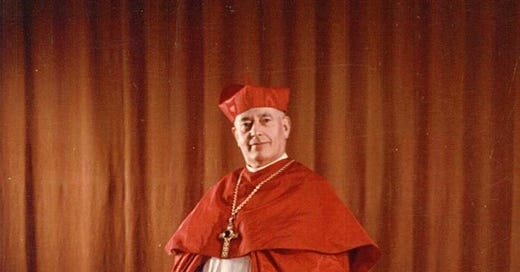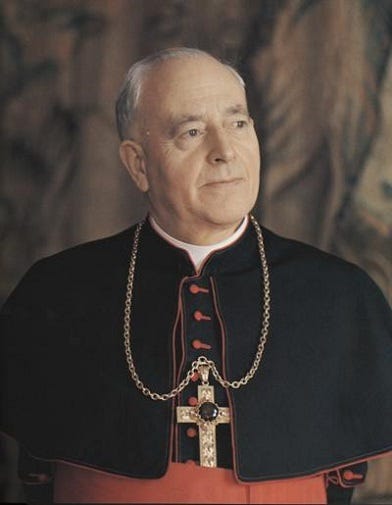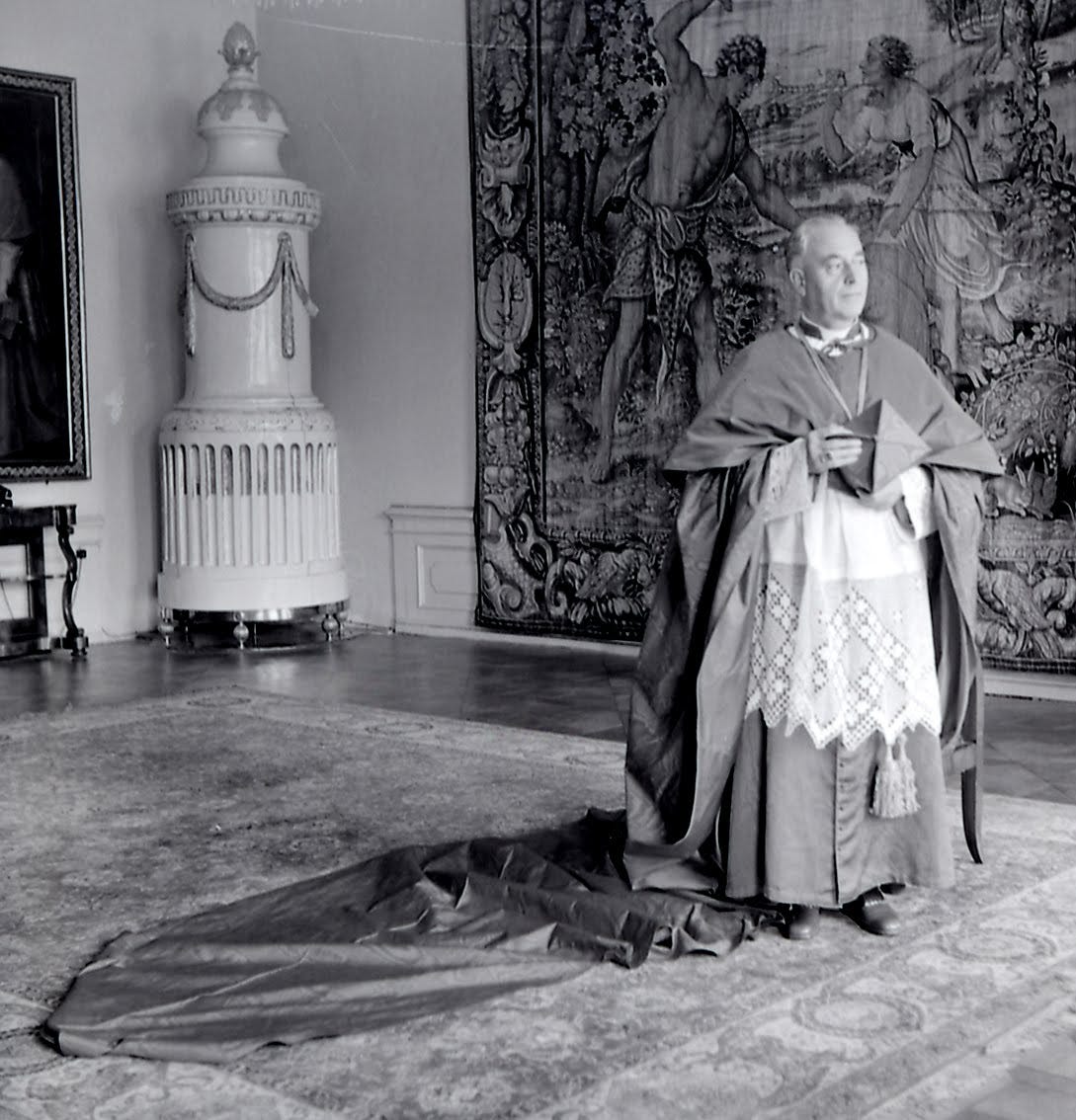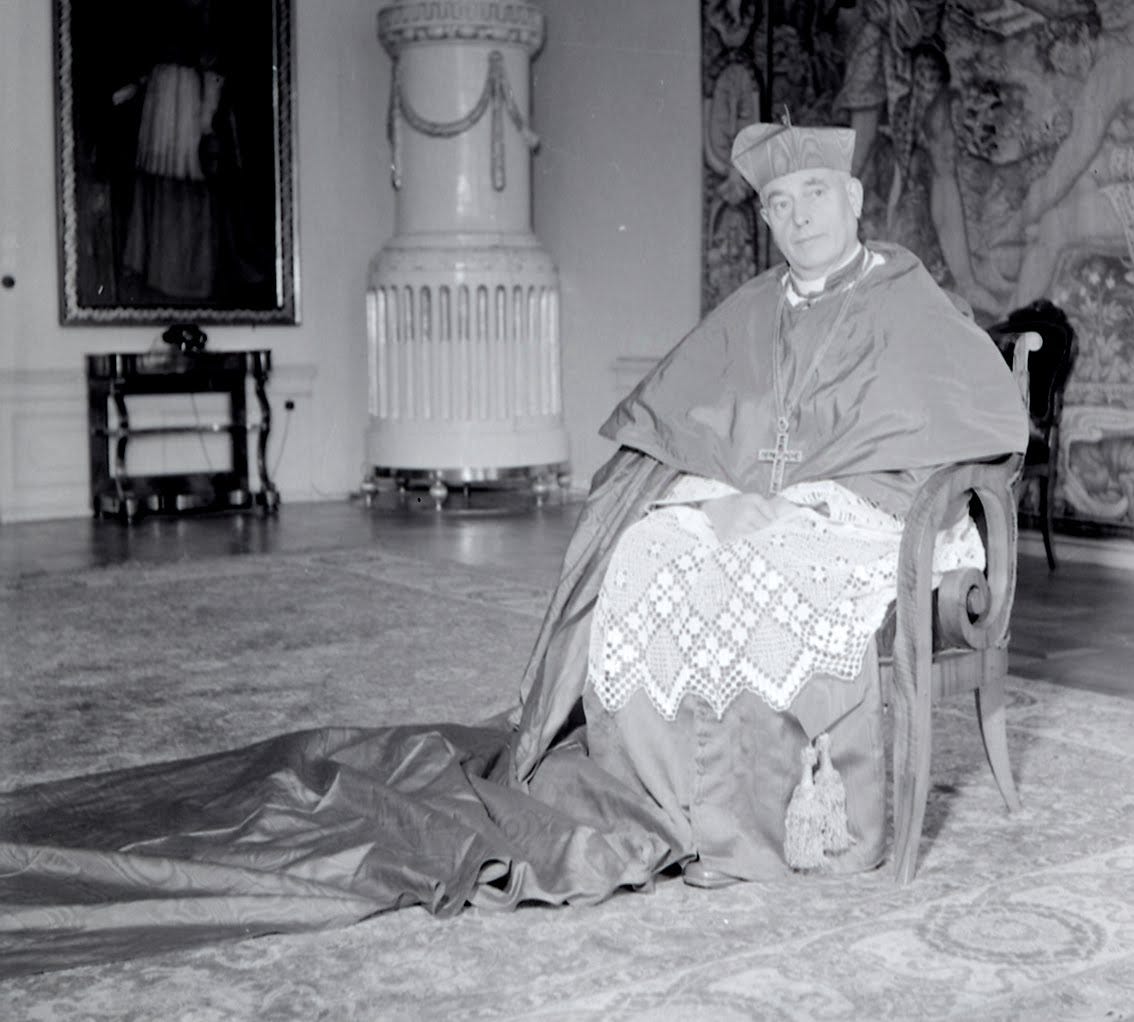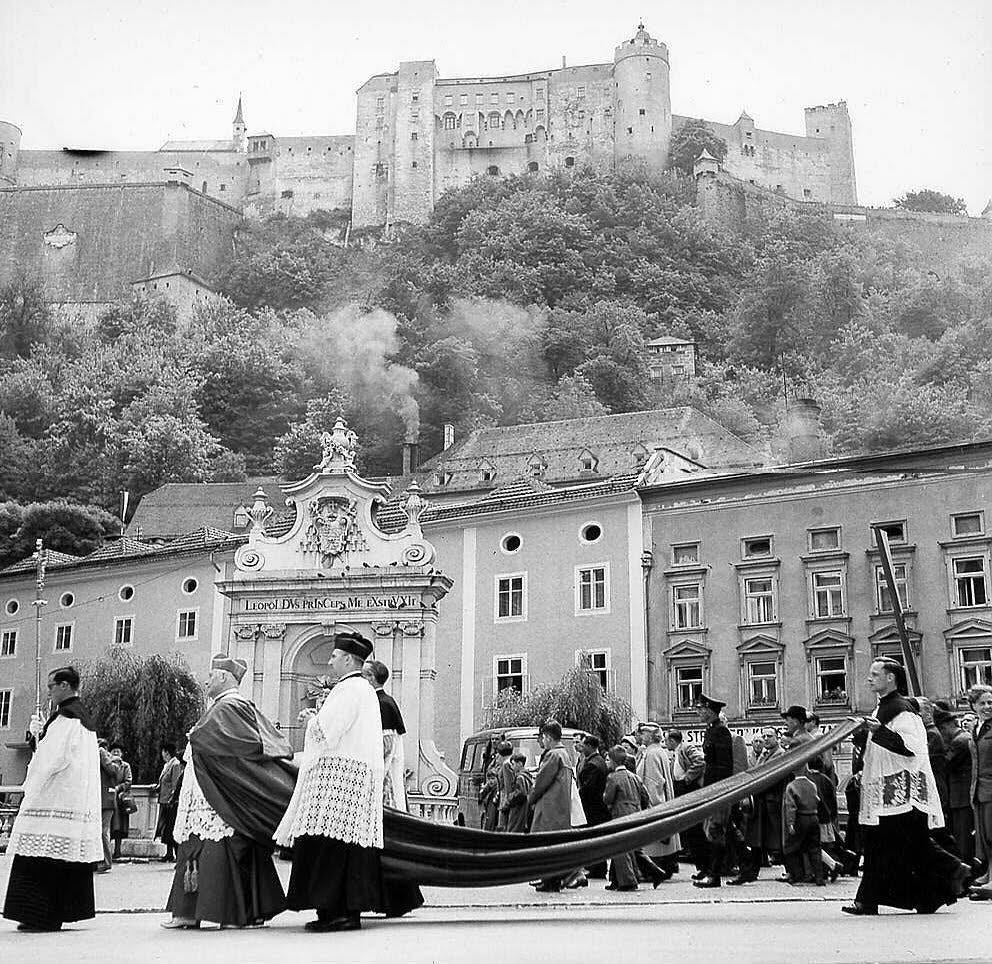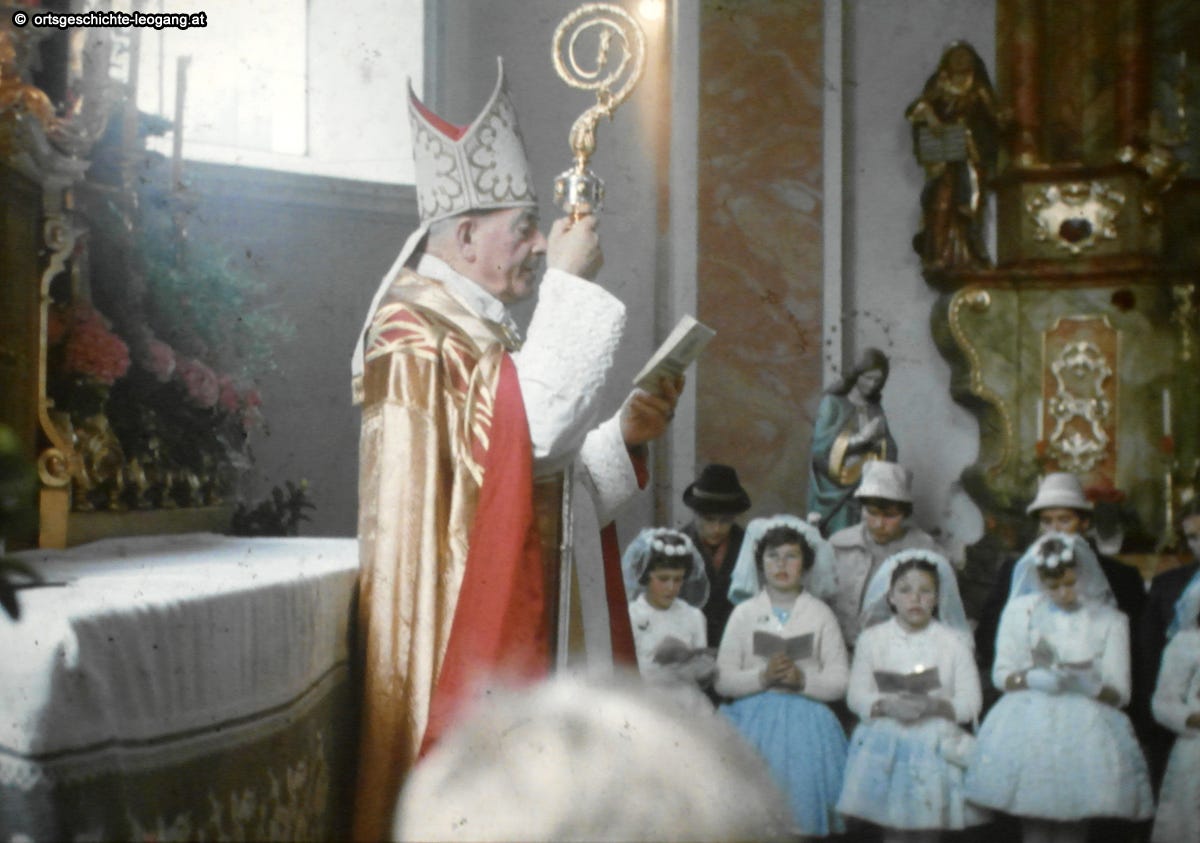Archbishop Andreas Rohracher, Prince-Archbishop of Salzburg and Primate of Germany from 1943-1969.
Born: 1892 (Tyrol)
Died: 1976 (Bavaria)
Archbishop Andreas Rohracher was the Prince-Archbishop of Salzburg (the last to bear the princely title) and Primate of Germany from 1943-1969. In this article, I will outline the main details of his life, accompanied by photographs.
BIOGRAPHY:
Born in Lienz (Tyrol) in 1892. He was ordained in 1915, and became a bishop in 1933.
From 1933-1939 he was Auxiliary Bishop of Gurk. In 1939, he was elected Bishop of Gurk.
In 1943, he was elected Prince-Archbishop of Salzburg, and Primate of Germany.
He always remained a supporter of the "Antifascist Freedom Movement of Austria", which, despite its name, was a Catholic-reactionary Party that viewed German fascism as a dangerous modernistic movement.
He was the only one of its major sympathisers who escaped execution, probably because of his high position.
After 1939, only one Catholic publication was permitted in the Salzburg Diocese, after the new government under Hitler completely banned the Catholic press and permitted only a single diocesan magazine to continue publication, which was forced to limit itself simply to printing sermons and recording administrative details.
In 1942, he issued a protest to the Gauleiter of Carinthia over the mass deportation of the Slovene population and the destruction of Catholic churches in the region of Carinthia. In 1943, he told a packed Salzburg Cathedral that he chose his motto "Servant of Jesus Christ" because, in his own words, "Wide circles of people [now] only recognise the master race, not a servant."
In one homily he gave at the height of the war, when it was clear Germany would lose, he lamented the state of the world, saying, "Today's humanity longs for life, for full, overflowing life. A hunger for life has gripped everyone, a rush for life is sweeping through the world, and yet life has rarely been as threatened as it is today. Seldom has so much life been destroyed as today. As a servant of Jesus Christ, I have been commissioned to lead people to the one who could say: 'I have come that they may have life and have it to the full.' (John 10:10)"
After the end of the Second World War, he called for reconciliation in Austria and called for former National-Socialists to be treated with love and forgiveness.
He participated in the Second Vatican Council. In 1966, he issued an official apology to Protestants for their expulsion from Salzburg in the 18th century. He retired in 1969.
Generally, he may be characterised as somebody who always tried to reconcile, in the love of Christ, those who had been outcast or whose lives torn asunder by politics and war.
He died in 1976 at age 84 at the Capuchin monastery in Altötting (Germany) where he retired.
Archbishop Rohracher in the 1960s.
Portaits of the Prince-Archbishop in choir dress.
Procession through Salzburg,
Archbishop Rohracher gives a sermon (1961).


